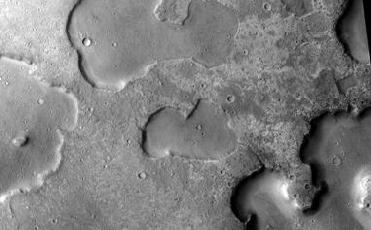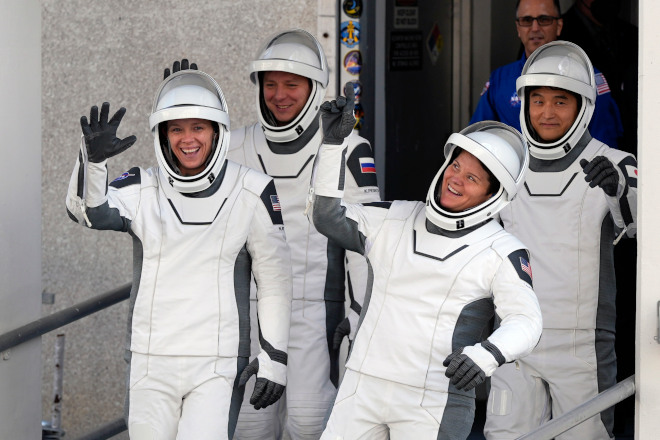
NASA Context Camera image of depressions interpreted as ancient lake basins. Image Credit: Imperial College London.
LONDON (BNS): Scientists with the help of amazing satellite images have found that Mars was warm enough to sustain lakes three billion years ago, a period that was previously thought to be too cold and arid to sustain water on the surface.
According to a news release by the Imperial College London, the research done by a team from Imperial College London and University College London (UCL) was published Monday in the journal Geology.
The research suggests that during the Hesperian Epoch, approximately 3 billion years ago, Mars had lakes made of melted ice, each around 20km wide, along parts of the equator.
�Most of the research on Mars has focused on its early history and the recent past. Scientists had largely overlooked the Hesperian Epoch as it was thought that Mars was then a frozen wasteland. Excitingly, our study now shows that this middle period in Mars� history was much more dynamic than we previously thought,� said Dr Nicholas Warner, lead author of the study, from the Department of Earth Science and Engineering at Imperial College London.
The researchers have analysed several flat-floored depressions located above Ares Vallis, which is a giant gorge that runs 2,000 km across the equator of Mars. They thus discovered a series of small sinuous channels that connected them together. These channels could only be formed by running water, and not by ice turning directly into gas, as reported in the release.
The research team believe that the melting ice would have created lakes and that a rise in water levels may have caused some of the lakes to burst their banks, which enabled water to carve a pathway through the frozen ground from the higher lakes and drain into the lower lying lakes, creating permanent channels between them.
Scientists obtained such detailed satellite images with the help of NASA�s Mars Reconnaissance Orbiter, which is currently circling the red planet.
 Previous Article
Previous Article Next Article
Next Article













The Indian Air Force, in its flight trials evaluation report submitted before the Defence Ministry l..
view articleAn insight into the Medium Multi-Role Combat Aircraft competition...
view articleSky enthusiasts can now spot the International Space Station (ISS) commanded by Indian-American astr..
view article